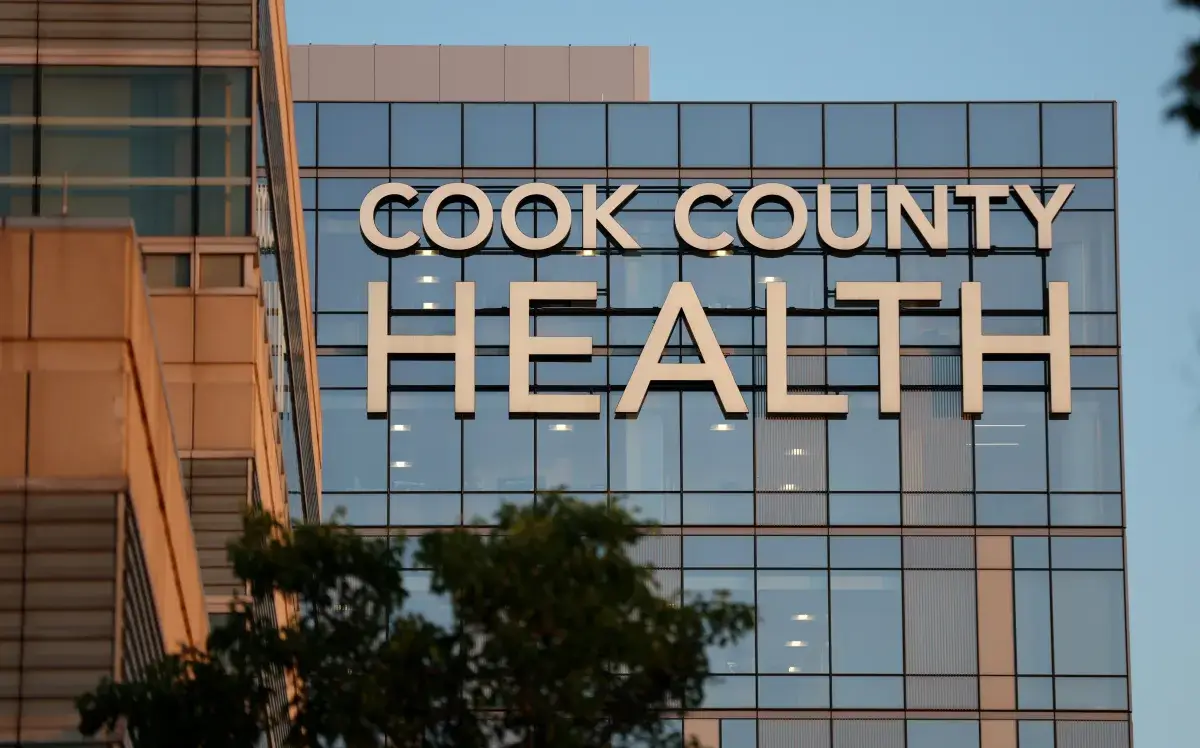A Bold Prescription for Tomorrow: Cook County Health and UI College of Medicine Forge a New Path in Healthcare
Share- Nishadil
- October 29, 2025
- 0 Comments
- 3 minutes read
- 49 Views

Cook County Health and UI College of Medicine Unite for a Healthcare Revolution
Cook County Health and the University of Illinois College of Medicine are forging a vital partnership, set to reshape medical education and frontline healthcare. This collaboration promises to address physician shortages and bolster care for underserved communities across Chicago, marking a significant step forward.
You know, some partnerships just feel right, don't they? And for Chicago's ever-evolving healthcare landscape, the news emerging from Cook County Health and the University of Illinois College of Medicine—set to truly blossom, it seems, by late 2025—is certainly one of them. This isn't just a handshake agreement; it's a strategic embrace, designed to reshape how we train our future doctors and, crucially, how we care for our most vulnerable neighbors.
For decades, Cook County Health, anchored by the iconic Stroger Hospital, has been a bedrock for underserved communities, a place where healthcare isn't a privilege but a fundamental right, often the last resort for those who truly need it most. And the University of Illinois College of Medicine? Well, it’s a powerhouse, a training ground for some of the brightest medical minds. So, when these two institutions — each with a rich, albeit distinct, history — decide to intertwine their missions, it's worth paying attention.
What's really at the heart of this collaboration, you might ask? Well, it’s multi-layered, as most significant endeavors are. On one hand, it’s about practical training. Imagine medical students from UI COM getting unparalleled, frontline experience within Cook County Health's diverse clinical settings. This isn’t just theoretical learning; it’s immersion. They'll be witnessing firsthand the complex tapestry of public health challenges, from chronic disease management to mental health crises, all within a system built on compassion and resilience.
But honestly, it goes deeper than that. This alliance aims squarely at a pervasive problem: the dire shortage of physicians, especially those equipped and willing to serve in underserved urban and rural areas. By exposing students early to the realities and rewards of community-based medicine, the hope is to foster a new generation of doctors—a more diverse, more empathetic cohort—who are genuinely committed to tackling health disparities head-on. It’s an investment, really, not just in individual careers, but in the health equity of an entire region.
This isn't to say such collaborations are without their complexities, of course; blending two large, established entities always requires careful navigation. Yet, the potential benefits, for students, for patients, and for the broader public health infrastructure of Chicago and beyond, seem to outweigh any perceived hurdles. It’s a chance to pool resources, to share expertise, and perhaps most importantly, to double down on a shared commitment to healing and learning.
In truth, this forthcoming partnership is a beacon of what's possible when institutions look beyond their individual mandates and see a larger purpose. It's a pragmatic, yet profoundly hopeful, step toward ensuring that quality medical care and robust medical education aren't just buzzwords, but lived realities for everyone who calls this great city, and indeed this state, home. It’s an exciting chapter, one truly worth watching unfold.
Disclaimer: This article was generated in part using artificial intelligence and may contain errors or omissions. The content is provided for informational purposes only and does not constitute professional advice. We makes no representations or warranties regarding its accuracy, completeness, or reliability. Readers are advised to verify the information independently before relying on







